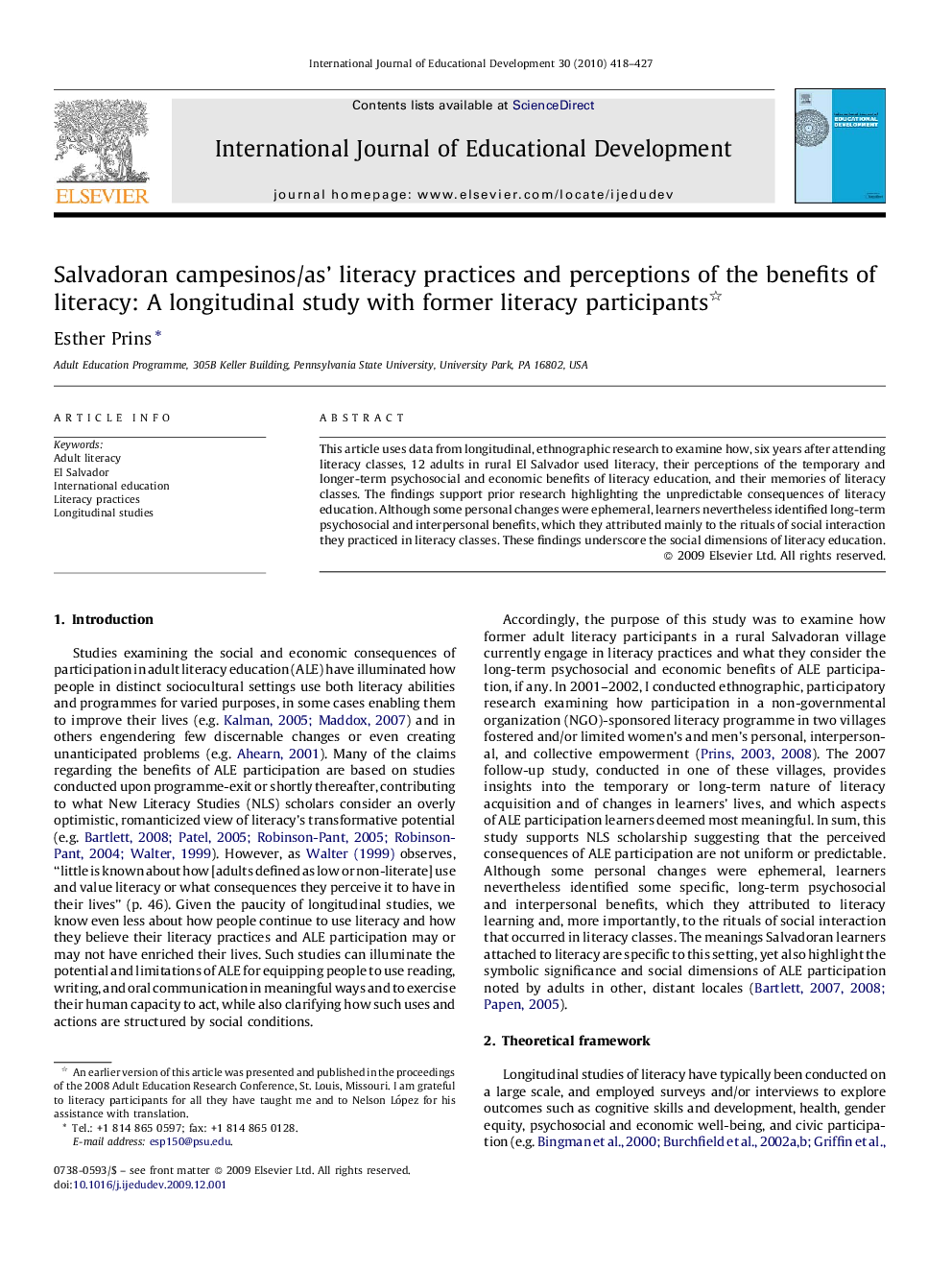| Article ID | Journal | Published Year | Pages | File Type |
|---|---|---|---|---|
| 356341 | International Journal of Educational Development | 2010 | 10 Pages |
Abstract
This article uses data from longitudinal, ethnographic research to examine how, six years after attending literacy classes, 12 adults in rural El Salvador used literacy, their perceptions of the temporary and longer-term psychosocial and economic benefits of literacy education, and their memories of literacy classes. The findings support prior research highlighting the unpredictable consequences of literacy education. Although some personal changes were ephemeral, learners nevertheless identified long-term psychosocial and interpersonal benefits, which they attributed mainly to the rituals of social interaction they practiced in literacy classes. These findings underscore the social dimensions of literacy education.
Related Topics
Social Sciences and Humanities
Social Sciences
Development
Authors
Esther Prins,
